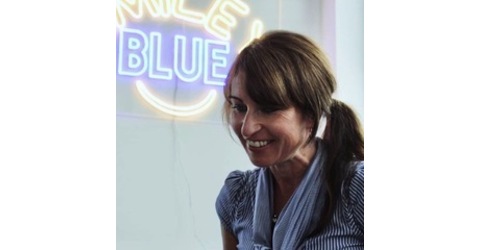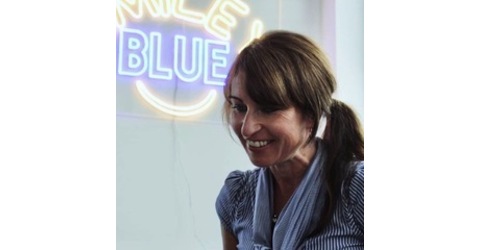Proverbs 22:6 Train up a child in the way he should go; even when he is old he will not depart from it.
Part One -Allow me to tell you a little story first...
Tell a child they're not good enough or a disappointment and they'll believe every word they're told. My mother said my siblings and I held her back from reaching her potential, because we were all unplanned accidents, and she found being a Mum felt like drudgery.
I’ve raised my own children, I get it, some days are extremely challenging, we can feel exhausted and drained. Yet, that sense of feeling you weren’t really wanted sticks, and it’s not what any child needs to hear to feel loved and valued.
I desperately wanted to be good enough in my parents' eyes, yet like so many children and teenagers, I found home life and the school education system extremely challenging.
Sitting down at a desk all day to concentrate and listen to someone talking for hours at a time, to this day, has never been my forte or something I have been able to do without wandering off to some faraway place in my mind. It wasn't long before I learned I was to be cast as the 'problem' at home and school.
”Why are you like the way you are?” my mother would say. “I bumped into our old neighbour the other day, her daughter is a doctor now” - you get the gist.
I started my own business at the age of twenty as a fitness coach, it was a great success. I became financially independent and never asked my parents for anything. I worked jobs from the age of fourteen and always paid my way when living at home.
Coming home to visit and stay with my parents one time in my early twenties, after a long drive and flight back, I was met with my mother at the door in her full hate-on-me mode. "You just think you can do whatever you like, don't you?" she snarled.
I'd only been through the door for 5 minutes. "By the way, I've thrown all your clothes out of your wardrobe. Thought as you left them here, you didn't want them." She knew she'd hit a nerve; my favourite blue suit and pretty white backless sundress with the butterfly print I'd always felt so lovely in were amongst the items she'd purposely thrown away.
I walked out of the kitchen to go to my room. I was too tired after the overnight flight and long drive and thought leaving the room would dissipate the argument my mother was clearly keen to escalate.
Alas, she followed me. This time she started slapping me as I backed away upstairs. "Who do you think paid for your f***ing abortion?" This was always her preferred weapon of choice, the one she'd use when she was really scraping the bottom of the barrel to provoke tears. She always knew it wounded me and that I still carried deep sadness and guilt.
I was eighteen when I discovered I was pregnant, my then-boyfriend was violent and abusive too, a pattern that followed me until I learned what boundaries were in later life.
"Mum, you didn't pay for it. You lent us the money, and I paid you back every penny." I replied, tears now welling up in my eyes. Bingo! She'd got what she wanted, I watched in disbelief as her lips curled up into a sickly, twisted smile.
I decided to leave and go back to my digs in the city. Crying now, I told my Dad I was going; he begged me with tears in his eyes to stay. "I'm so sorry Dad, I can't be around this anymore."
I left, knowing that Dad was on his own now in the toxic family environment that was once my home. Yet, it was another fifteen years following the passing of my father before I finally decided to have no contact again with my family of origin.
My mother was raised in trauma and abuse too, so I don't blame her, albeit the cycle continues until someone in the family decides to end it. The worst part? The bystanders, and the enablers of the abuse system who pull rank to protect the abuser and family name. It is bizarre to me how just the one little word 'family' allows abusers to get off the hook so lightly.
The anger and constant anxiety I had to process in my early forties nearly destroyed me, thankfully I learned ways to channel it. One day I swam over 4 miles in the pool. I used the anger to raise myself upwards, helping others and growing in faith, knowledge and wisdom. Today I see how these experiences have propelled me and I am truly grateful- Thank you, God
Psalm 40:1-2 “I waited patiently for the Lord; he turned to me and heard my cry. He lifted me out of the slimy pit, out of the mud and mire; he set my feet on a rock and gave me a firm place to stand.”

Part 2- The Unhealed Children in Adult Bodies
Ever heard someone say this? "My parents hit me - didn't do me any harm" Is that really how you believe respect ought to be modelled to a child? It's really important to ask yourself what behaviours you want to model to your children and family, this is how they learn how to model respect in their later years -Do the inner work now, and you heal the next generation.
With every word you utter and every action you take, your children and those around you watch, learn, and absorb. Every word and action carries energy - Make it good energy!
The Cycle of Unhealed Trauma
The long-lasting effects of experiencing physical, and emotional abuse during childhood can be catastrophic in adulthood, especially when the individual is unable to recognise the profound impact these experiences are having on their adult life.
Our childhood experiences shape us by influencing all our decisions, interactions and even our selection of a life partner, all mirroring our parents' or caregivers' treatment of us.
We desperately try to escape the shadows of our past traumas, using all manner of things such as food, alcohol, drugs, sex or perhaps even an inner drive to prove ourselves and succeed- Eventually, the shadow catches up with us.
Could it be that facing these traumas head-on is the true path to healing?
Many adults today outwardly and unconsciously wear their childhood trauma, in the form of anger, rage, excessive pride and controlling behaviours. It's often unrecognised and untreated, and it’s not unusual to see a complete denial of the need for help. This stubborn denial still stems from their upbringing by their caregivers who, like themselves, were also shaped by childhood trauma- The cycle keeps turning.
Sadly, the parents of these children did not demonstrate respect, resorting instead to physical and verbal abuse to impose control and demand what they thought looked like respect.
This cycle of abuse manifests in all corners of our society. We see it in managers and bosses who demand their way or people who have sudden outbursts of anger and frustration, spilling their vitriol over everyone in the vicinity. We can end up tip-toeing around them in case they erupt.
When poor behaviour is confronted these individuals can perceive it as a personal attack and become defensive, shifting the focus away from themselves, blaming others again or their challenging external circumstances. Anything except acknowledging and taking full responsibility for their inappropriate actions and behaviours... It's understandable, to some extent, if their childhood need for respect always went unfulfilled, and they felt disempowered by the mental and physical abuse. As grown adults, they can hold a deep inner desire for outward respect, yet often go about getting what they want the wrong way- You are like a boomerang, what you send out, always returns.
The Impact of Expectations and Unmet Needs
Expectations often cause suffering and disappointment, so it's wise to manage them. Adults who haven't healed their inner childhood trauma may always see life as the glass half empty, and despite other's constant efforts to fulfil them to the top, there seems to be a leak that prevents them from ever feeling full and satisfied with their life- You have to want everything you have.
"True love for self and others is to be like a full cup, whole, complete and overflowing with the warmth and good cheer of an open heart." Lisa Precious
The cycle of abuse and trauma doesn't necessarily end when individuals have children of their own. Despite the genuine belief, that they're very different from the parents who mistreated them, many inadvertently and unconsciously go on to repeat the same old patterns. When support is offered, it's often met with outright denial and the response "I'm fine", while remaining unaware of the damaging impact their actions and behaviours have on others.
It is regrettable these individuals were not given the respect they deserved in childhood or their emotional needs met. The generational cycle will continue until a courageous family member steps up to address it, and finally breaks the cycle that plagues the lineage.
Like Our Content? Become A Smiley Blue Member HERE and Join Our Community.
The Suppression of Emotions and Its Consequences
Anger is a natural reaction to abuse and trauma, and it's important to recognise and take the time to process the emotions it brings. Many children, however, were not allowed to express their feelings freely, instead, they soon learned to feel shame about showing sadness or crying. Phrases such as "just shut up," "stop being a baby," or "man up" often lead men, in particular, to suppress their essential emotions.
As adults, this unhealthy suppression in childhood may lead to displays of demanding respect, or angry outbursts over minor frustrations when things don't go as planned.
The irony here is when the same behaviours are mirrored back to an unhealed adult, they don't like it, feel offended and personally attacked.
The Journey of Emotional Healing
Yes, there is hope for adults with unhealed childhood trauma. Healing is possible, and many find that with the right support and resources, they can process and release their childhood traumas, provided they begin to acknowledge their impact upon those around them.
Managing emotions and anger is a journey that takes one step at a time. It's about becoming aware and mindful of the mental chatter. That little voice inside our head can be our worst critic, often holding us back and passing critical judgment on others.
Recognising this critical inner voice is an important step. Start by questioning, "Who is this?" You are not this voice because you're now conscious of it—the one urging you to indulge in judgement, anger, desires or excesses. We all have this voice, but it's the one that can and will sabotage everything if we don't learn to control and teach it.
The chances of ever receiving an apology or acknowledgement of harm from those who wronged us are very slim, particularly if they aren't ready to confront their childhood trauma. Therefore, we must seek the answers and solutions within ourselves. We must define and demonstrate outwardly respect on our terms. Being respectful, even to those who are not kind to us, is a practice that, over time, we can all master.
Matthew 7:12 So in everything, do to others what you would have them do to you, for this sums up the Law and the Prophets.
We often let the world around us shape who we are, but the external environment is not us. You're here having a human experience - part of everything, yet separate too. When we realise this deep truth, we can see that we're not what's happening outside of us. Instead, we're the ones inwardly shaping our world.
As grown-ups, we can take back our power. We can start to see that all our experiences, good and bad, are helping us find the right path in life. For example, when life presents you with a challenging storm and you have to walk through it, the storm isn't out to get you. It's giving you a chance to believe in yourself, get stronger, and grow more resilient. You always have the power to choose how you want to view life and its inevitable challenges.
In time we can learn to feel gratitude for the hard times, and even greater gratitude for the inevitable good that arises. One can begin gradually releasing all that no longer serves their life and ongoing growth. Sometimes it can take being broken down to no-thing so that we learn to appreciate every-thing.
Here's the funny thing about life: the more you face the difficult tough stuff head-on, the easier things get, and eventually you'll feel more relaxed, at ease and peace with your life.
8 Tips for Healing from Childhood Trauma
- Acknowledge your Impact: Begin to recognise how your childhood experiences shaped your adult life, including your decisions, interactions, and relationships.
- Face Your Traumas: Instead of trying to escape the shadows of the past, face them directly as a path to healing.
- Manage Expectations: Be aware of having any expectations. Learn to push expectations aside to reduce your suffering and disappointment.
- Express Emotions: Allow yourself the space to express your suppressed childhood emotions without feeling a sense of shame.
- Awareness: Become aware of your inner voice and mental chatter. Begin questioning your negative self-talk and judgmental thoughts. Remember it is not you who is defined by this voice, but your conscious awareness of it.
- Meet The Unhealed Child: Quietly sit and imagine meeting your child self. Honour the inner child by letting them know you love and respect them deeply. This process can bring about powerful, healing emotions.
- Talk To Your Loved Ones: Communicate with your loved ones by letting them know you are working to improve your behaviours, ask for their support.
- Open Your Heart: The spiritual journey, although challenging requires an open heart at all times. Practice keeping your heart open to all, and remember most people are simply trying their best to make their way through life.
Finally, healing is a journey that slowly unfolds one step at a time. By implementing these tips and seeking appropriate support, you can begin to break the generational cycle of unhealed trauma and move towards a more peaceful, authentic, joyful and fulfilling life.
“Trauma is a fact of life. It does not, however, have to be a life sentence.” – Peter Levine
How To Transform Your Life With Personalised Spiritual Support. Click Below To Learn More.









